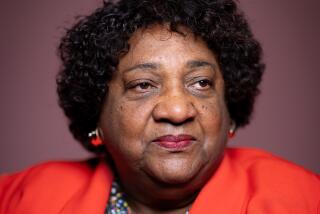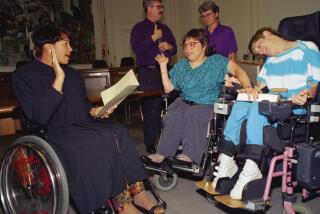This Rosie the Riveter repaired war-torn WWII fighter planes. She’s finally getting a thank you
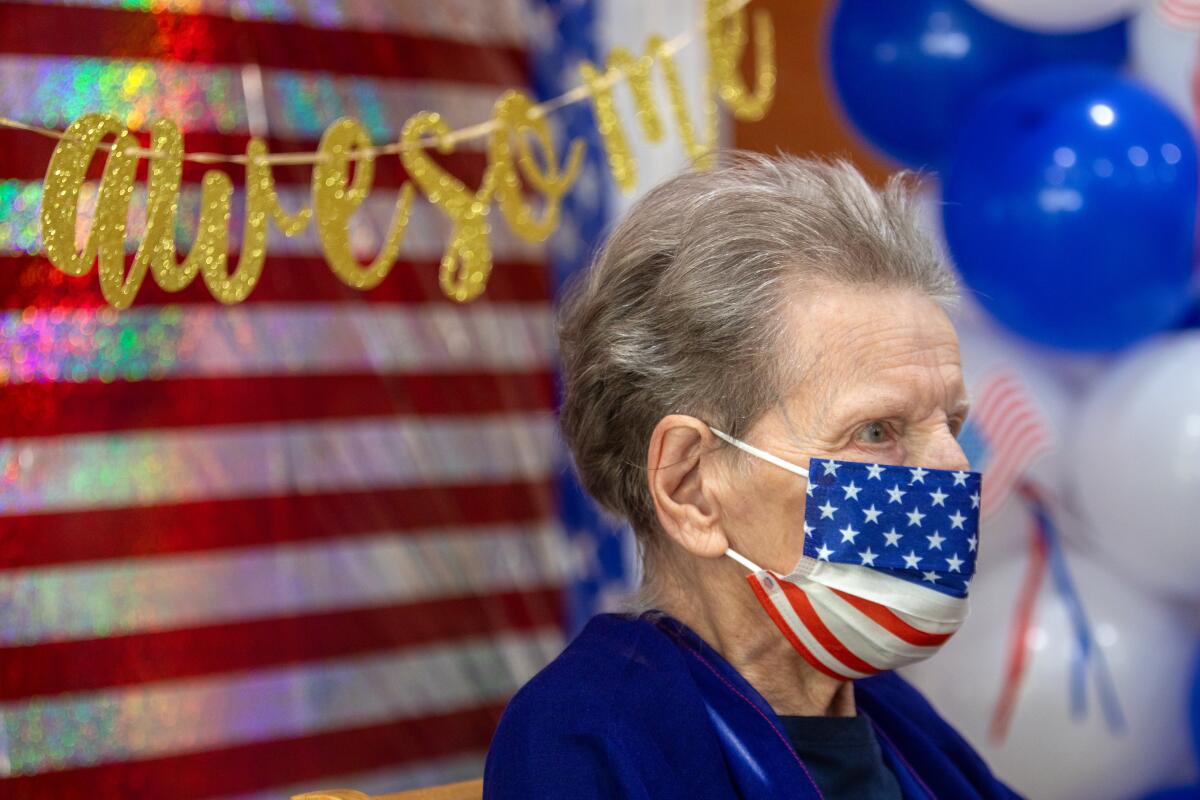
- Share via
Shirley Virginia Bellemeur holds up an imaginary piece of metal with her delicate fingers. She punches it repeatedly with her other hand, as though she’s holding a rivet gun.
“It would go dun dun dun dun,” Bellemeur, 99, says quietly as she sits in her Pasadena retirement home. She was honored with a leadership award on Wednesday for her job as a Rosie the Riveter from 1944 through 1946, when she repaired war-torn seaplanes during World War II.
“I hope I wasn’t too loud,” she said before a crowd of friends, family and well-wishers at the Pasadena Meadows Nursing Center, where she was surrounded by red, white and blue balloons. Bellemeur herself sported a silky red, white and blue shawl.
“I’m overwhelmed,” she said as Rep. Judy Chu (D-Monterey Park) handed her the congressional leadership award, TV cameras pointed their way. Bellemeur says she’s an introvert and couldn’t imagine this type of attention focused on her.
“She is clearly very humble,” Chu said. “I think that we in this country have not done enough to honor the Rosie the Riveters, who stepped up to continue all the manufacturing in our factories and the shipyards while men went off to serve in the war. They kept up our war effort, and did it magnificently.”
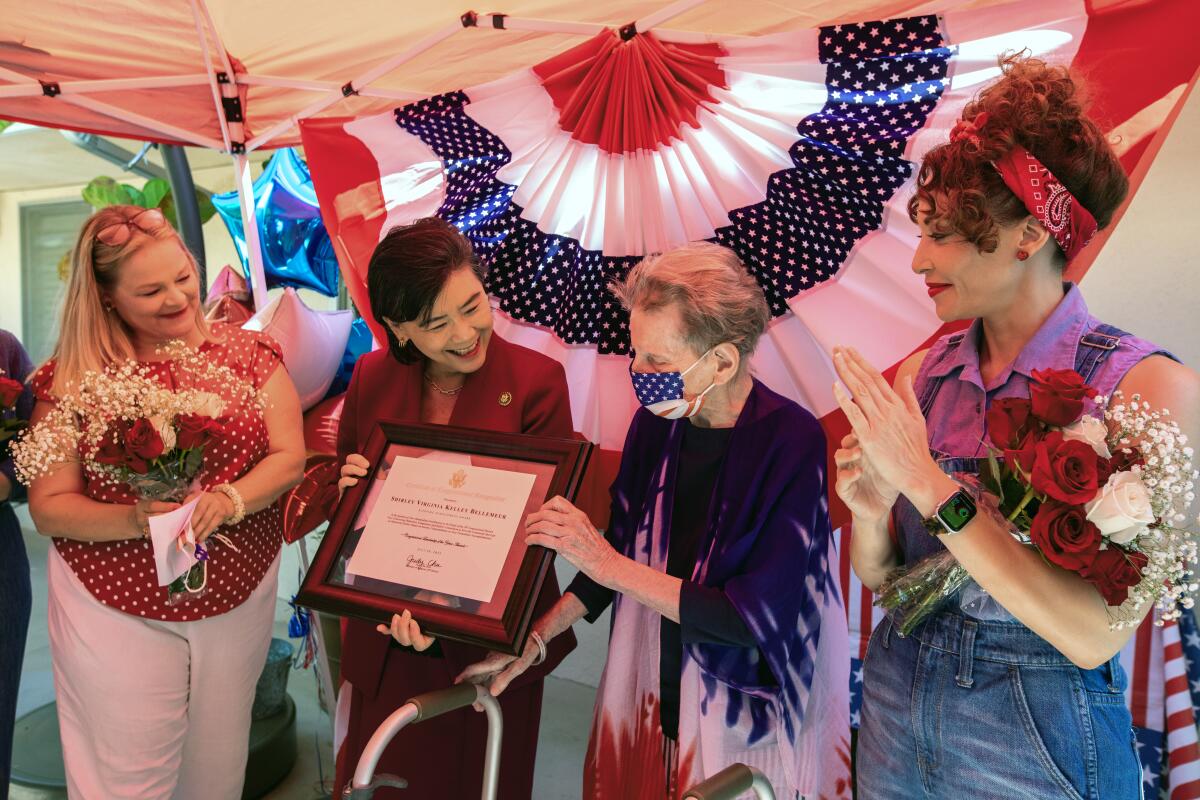
Rosie the Riveter was a cultural icon used in wartime campaigns to encourage women to work in factories and on assembly lines. The character sported blue coveralls and a polka-dot bandanna. She flexed her arm beneath the slogan “We Can Do It.”
At her retirement home, some staff members sport the bandanna and line up to take a photo with Bellemeur as she adjusts her American flag face mask. More reporters ask her questions about her work in the war. She can’t always hear the words and worries that the memories are not as clear as she’d like them to be.
“That was important to me then, at the time. Now it’s a memory that I have,” she says. “My goodness. I have done so many things in my almost 100 years.”
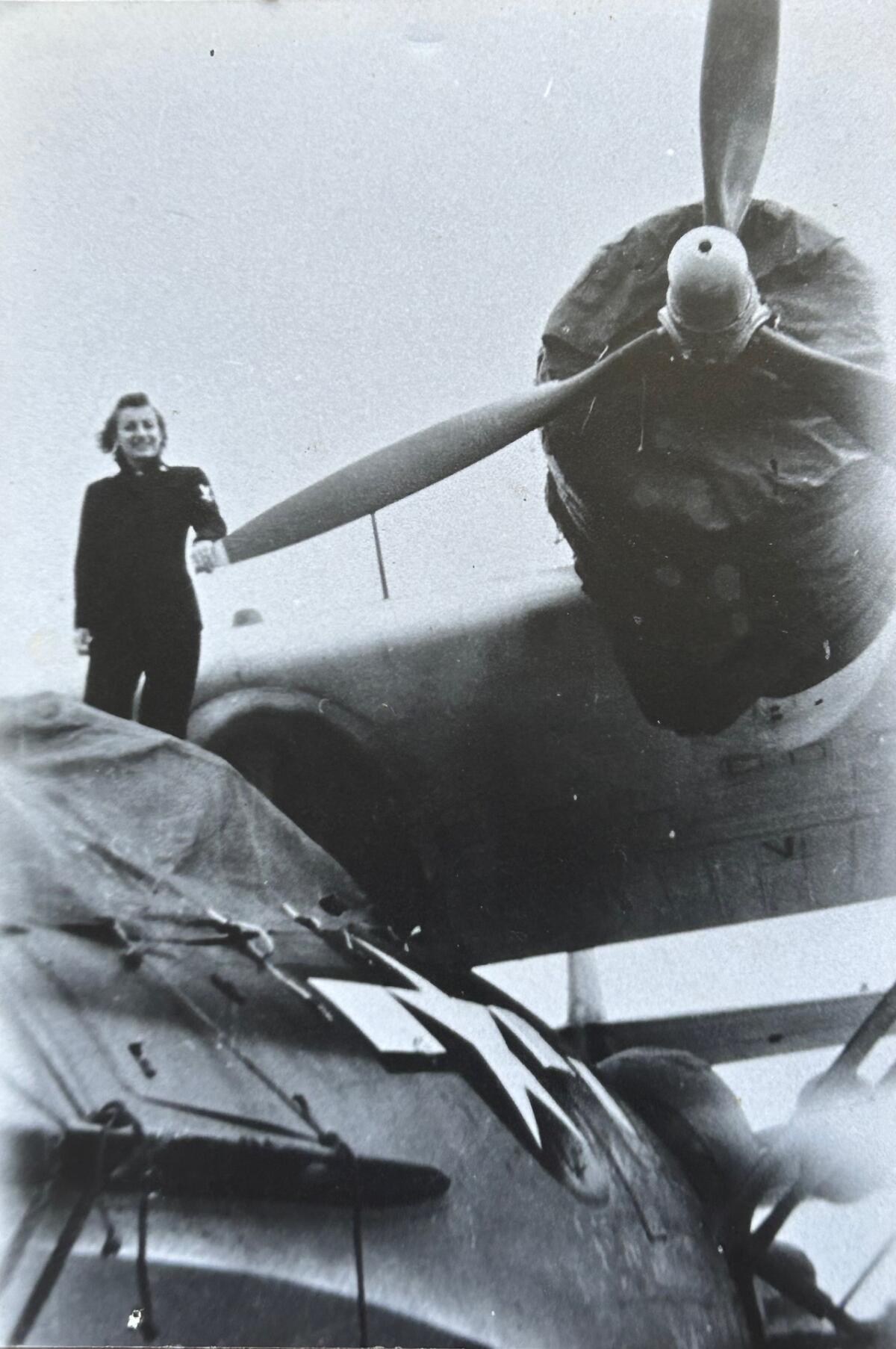
Nearly 80 years ago, Bellemeur held between her hands the wings of seaplanes dented and riddled with bullet holes from their service in the skies over Europe. She cannot recall all the details from the work, but she remembers climbing into the hollow end of a wing and helping rivet it from the inside, her body wedged between the layers of metal.
At 20, she left her family home in Montpelier, Vt., for a naval air station in Pensacola, Fla. Bellemeur joined the Women Accepted for Volunteer Emergency Service (WAVES) with the U.S. Navy and worked as a metalsmith, primarily on PBY Catalina seaplanes. After the war, she married Winston Bellemeur, and they drove across the country to Pasadena, where they settled down and had three children. The couple would later divorce in the 1970s.
Bellemeur’s granddaughter, Leah Snell, didn’t know much about her grandmother’s wartime past. There was little conversation about what happened during that time, and Bellemeur was reticent about sharing.
Snell always knew her grandmother as an educator, because later in life when Bellemeur was in her 40s, she went back to school and got her master’s degree at Pacific Oaks College in Pasadena. She worked as a preschool director of education and developed policies and educational requirements for the schools.
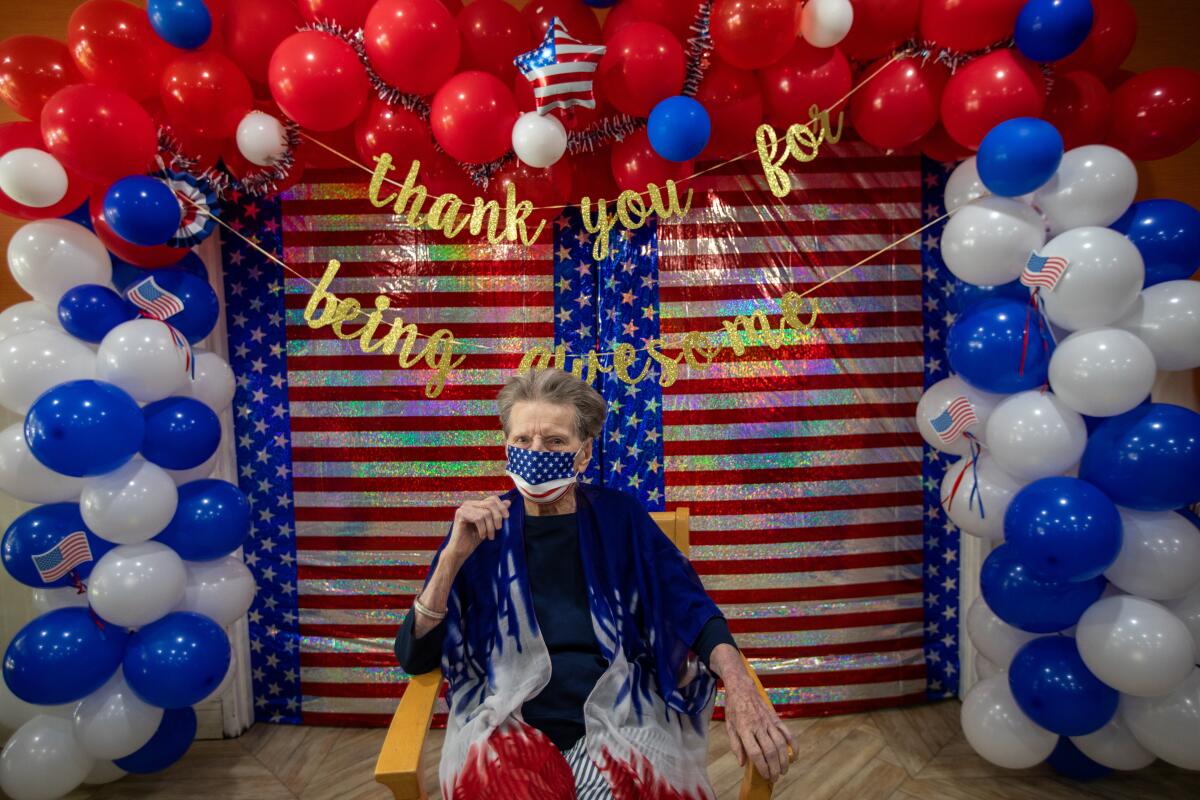
Bellemeur took Snell on a yearly summer trip to Vermont and then on a Habitat for Humanity mission to Mexico to build a house.
“Travel opens your eyes,” Snell said. “I’m glad that she encouraged that.”
Bellemeur was also a child of the Great Depression and frugal, so if the family needed something, she would opt to build it herself.
“She built a swimming pool out of some kind of, I don’t know, waterproof canvas,” Bellemeur’s daughter, Renee Walker, said. “It wasn’t huge, but it was enough to hold water. When we were kids, she was very creative, and very hardworking and very thoughtful.”
Although her memory is not as sharp as it used to be, Bellemeur can still conjure up the memories of her time working on the planes. During an intake session at Pasadena Meadows with geriatric clinical psychologist Dr. Kristen Eddy, Bellemeur volunteered that she worked on seaplanes during the war.
Bellemeur told Eddy that people did not see a woman’s place as anywhere outside the home, but that changed during the war.
“It’s inspiring to be in the presence of a woman who had an impact on future generations of women,” Eddy said. “I’ve never been ignorant of the sacrifice those women had to endure to find a way to make a better world for all of us.”
Eddy contacted Chu’s office and nominated her for the Congressional Leadership of the Year Award. Ari Kalechstein, president of Executive Mental Health and Eddy’s superior, commended her for recognizing Bellemeur’s story.
But Bellemeur did not relish the fact that she would be on the receiving end of so much attention. She has a sister, Barbara, who is 100 and usually did all the talking when they were younger. Bellemeur will turn 100 in December.
When the TV cameras arrived at the Pasadena retirement home, staff retrieved Bellemeur from her room. She said they insisted that she use a walker.
“I don’t like to use it, because it immediately identifies you as limited,” she said as she glided down the hall, leaning lightly on the walker.
She learned long ago, holding a riveter in her hand, that limits don’t always apply and anyone can forge a path forward.
More to Read
Sign up for Essential California
The most important California stories and recommendations in your inbox every morning.
You may occasionally receive promotional content from the Los Angeles Times.
